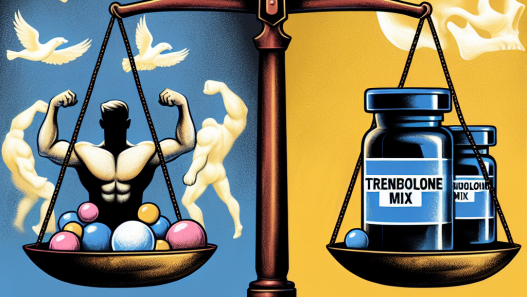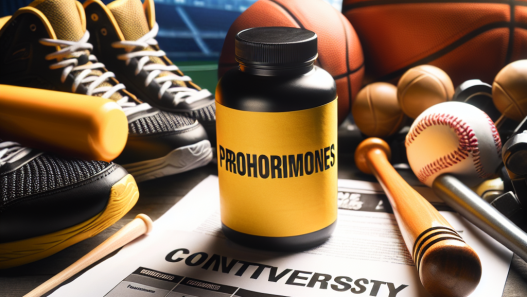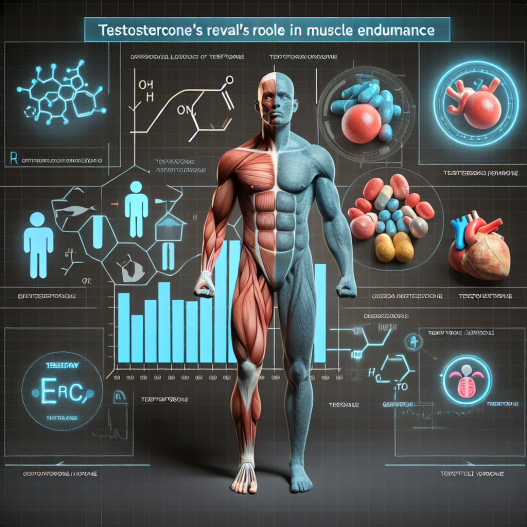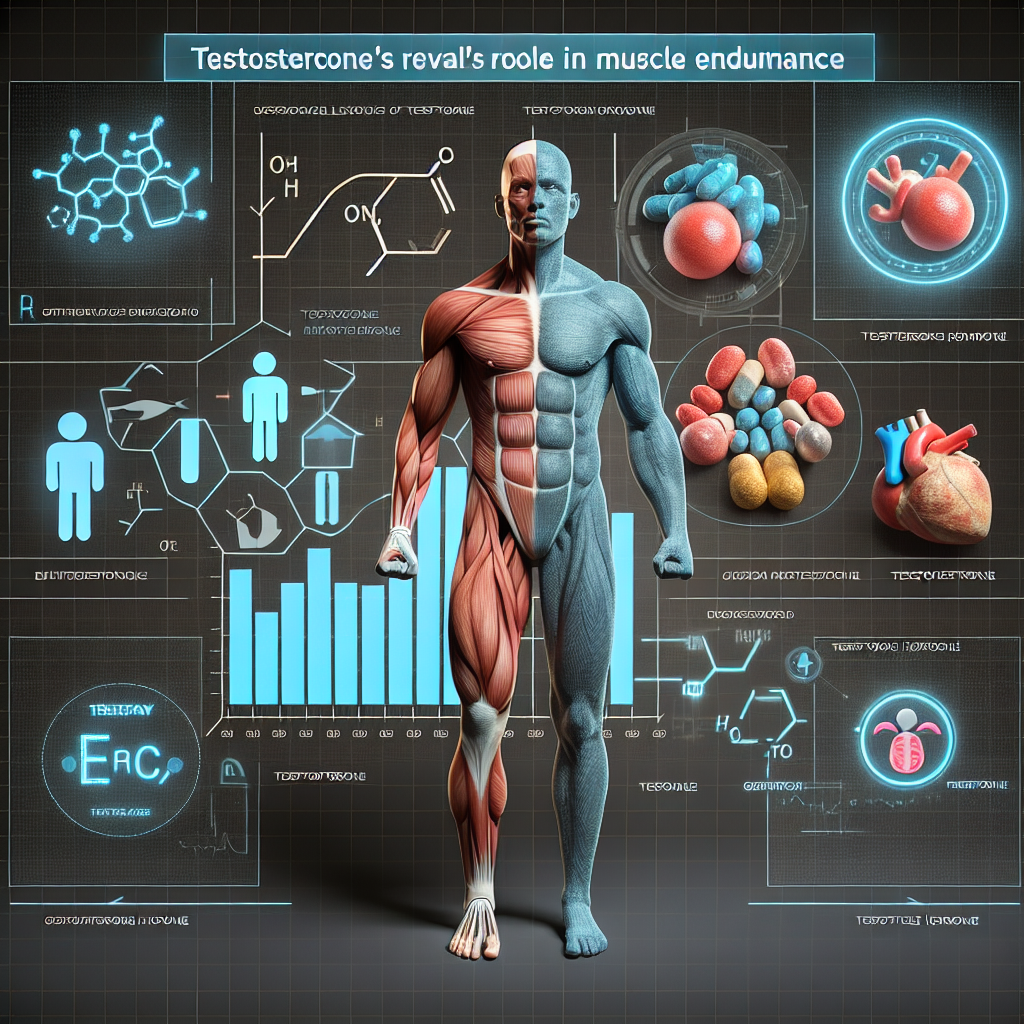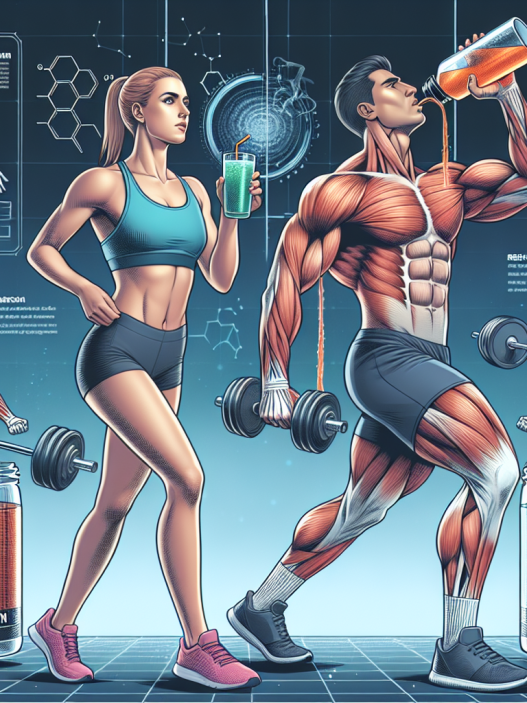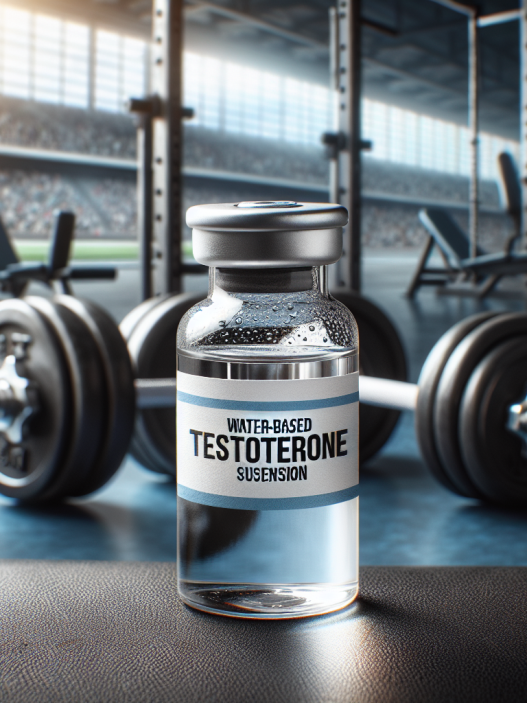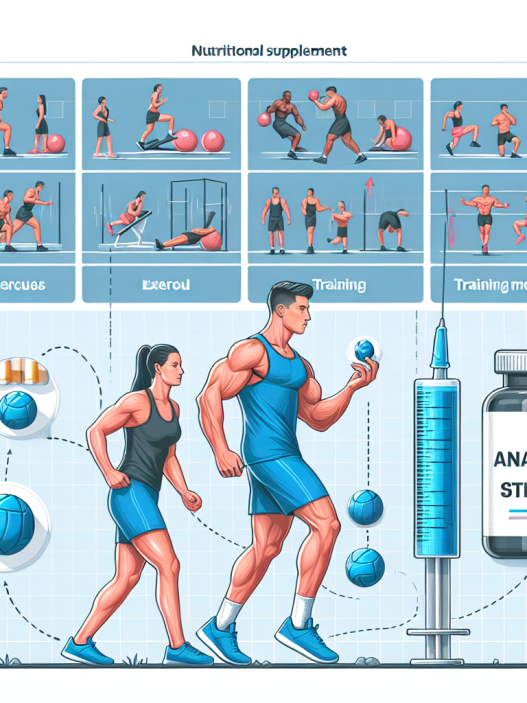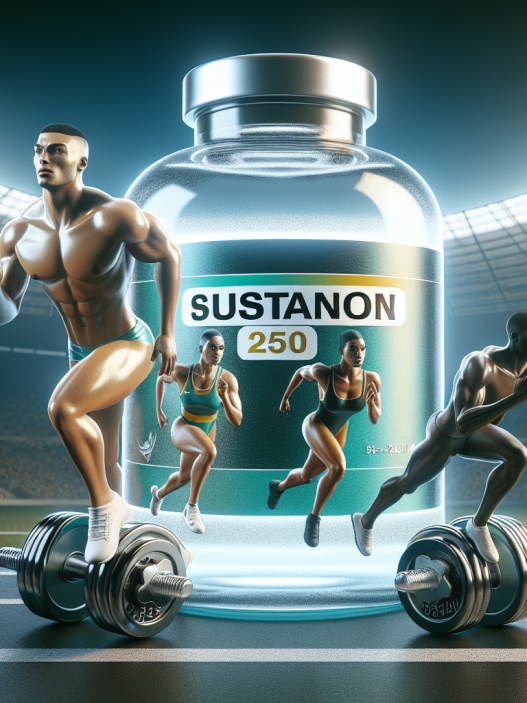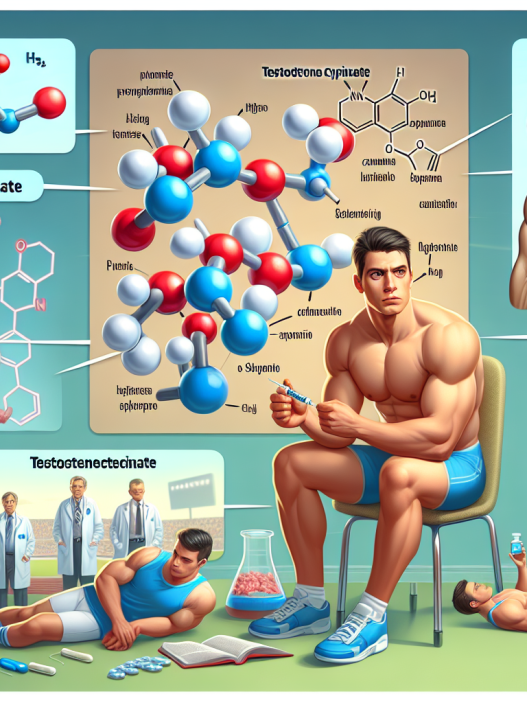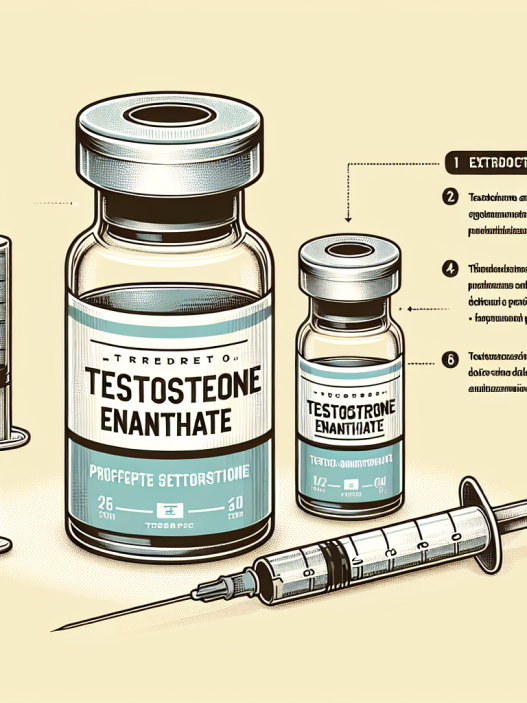-
Table of Contents
Testosterone and Muscle Endurance: A Comprehensive Overview
Testosterone is a hormone that plays a crucial role in the development and maintenance of male characteristics. It is also known to have a significant impact on muscle growth and endurance. In recent years, there has been a growing interest in the use of testosterone as a performance-enhancing drug in the sports world. However, there is still much debate surrounding its effects on muscle endurance and the potential risks associated with its use. In this article, we will provide a comprehensive overview of testosterone and its impact on muscle endurance, backed by scientific evidence and expert opinions.
The Role of Testosterone in Muscle Endurance
Testosterone is primarily produced in the testes in men and in smaller amounts in the ovaries and adrenal glands in women. It is responsible for the development of male reproductive tissues and secondary sexual characteristics such as increased muscle mass, bone density, and body hair. Testosterone also plays a crucial role in the regulation of muscle growth and endurance.
Studies have shown that testosterone levels are positively correlated with muscle mass and strength. Higher levels of testosterone have been linked to increased muscle protein synthesis, which is essential for muscle growth and repair. Testosterone also enhances the production of red blood cells, which are responsible for carrying oxygen to the muscles. This increased oxygen delivery can improve muscle endurance and delay fatigue during physical activity.
Furthermore, testosterone has been found to have a direct impact on the central nervous system, specifically on the motor neurons that control muscle contraction. This can lead to improved neuromuscular coordination and increased muscle endurance.
The Impact of Testosterone on Muscle Endurance
Several studies have investigated the effects of testosterone on muscle endurance in both healthy individuals and those with muscle-wasting conditions. One study found that testosterone supplementation in healthy men resulted in a significant increase in muscle strength and endurance compared to a placebo group (Bhasin et al. 2001). Another study showed that testosterone therapy in men with chronic obstructive pulmonary disease (COPD) improved muscle endurance and exercise capacity (Casaburi et al. 2004).
Moreover, a meta-analysis of 27 studies found that testosterone supplementation in men with low testosterone levels significantly increased muscle strength and endurance (Liu et al. 2016). These findings suggest that testosterone can have a positive impact on muscle endurance in both healthy individuals and those with muscle-wasting conditions.
The Risks of Testosterone Use in Sports
While testosterone has been shown to have positive effects on muscle endurance, its use as a performance-enhancing drug in sports is highly controversial. The World Anti-Doping Agency (WADA) has banned the use of exogenous testosterone in sports due to its potential for abuse and adverse health effects.
Exogenous testosterone refers to testosterone that is not naturally produced by the body and is instead taken in the form of injections, gels, or patches. This type of testosterone use can lead to abnormally high levels of the hormone in the body, which can have serious consequences. Some of the potential risks associated with exogenous testosterone use include liver damage, cardiovascular problems, and hormonal imbalances (Nieschlag et al. 2016).
Furthermore, the use of testosterone in sports can also lead to unfair advantages for athletes. Testosterone has been shown to improve muscle strength and endurance, giving users an edge over their competitors. This can lead to an uneven playing field and undermine the principles of fair competition in sports.
Expert Opinions on Testosterone and Muscle Endurance
Despite the potential risks and controversies surrounding testosterone use in sports, some experts believe that it can have a positive impact on muscle endurance when used responsibly. Dr. Peter Sonksen, a leading expert in sports endocrinology, believes that testosterone can be beneficial for athletes with low testosterone levels, stating that “if you have a deficiency, then you should be allowed to replace it” (BBC Sport, 2012).
However, Dr. Sonksen also acknowledges the potential for abuse and the need for strict regulations in sports. He suggests that “there should be a limit on how much testosterone you can have in your body, and if you go above that, then you’re cheating” (BBC Sport, 2012). This highlights the importance of responsible use and monitoring of testosterone levels in sports.
Conclusion
In conclusion, testosterone plays a crucial role in muscle endurance and has been shown to have positive effects on muscle strength and endurance in both healthy individuals and those with muscle-wasting conditions. However, its use as a performance-enhancing drug in sports is highly controversial and has been banned by WADA due to its potential for abuse and adverse health effects. While some experts believe that testosterone can be beneficial when used responsibly, strict regulations and monitoring are necessary to ensure fair competition in sports.
References
BBC Sport. (2012). Testosterone: What is it and how does it impact performance? Retrieved from https://www.bbc.com/sport/olympics/19089208
Bhasin, S., Woodhouse, L., Casaburi, R., Singh, A. B., Bhasin, D., Berman, N., … & Storer, T. W. (2001). Testosterone dose-response relationships in healthy young men. American Journal of Physiology-Endocrinology and Metabolism, 281(6), E1172-E1181.
Casaburi, R., Bhasin, S., Cosentino, L., Porszasz, J., Somfay, A., Lewis, M. I., … & Storer, T. W. (2004). Effects of testosterone and resistance training in men with chronic obstructive pulmonary disease. American Journal of Respiratory and Critical Care Medicine, 170(8), 870-878.
Liu, P. Y., Swerdloff, R. S., Veldhuis, J. D., & Lakshman, K. M. (2016). Effects of testosterone on muscle strength, physical function, body composition, and quality of life in intermediate-frail and frail elderly men: a randomized, double-blind, placebo-controlled study. The Journal of Clinical Endocrinology & Metabolism, 101(1), 256-264.
Nieschlag, E., Swerdloff, R., Nieschlag, S., & Swerdloff, R. (2016). Testosterone: action, deficiency, substitution. Springer.

